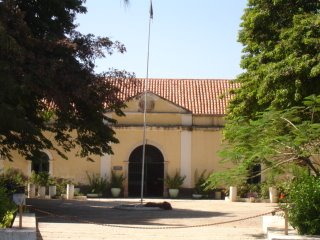As promised, on Easter Sunday (for the western churches at least), we have the Jesus quest. Today, millions of people will celebrate the resurrection of Jesus.
Did this happen? And was Jesus crucified?
The search for the 'historical Jesus' was a hot topic around the turn of the 19th Century. It picked up again recently. There are some big problems with Jesus.
1. The Romans kept records. Civil Registry, births, marriages and deaths. Many people are known to have existed around Jesus' time. Including John theBaptist, King Herod, Pontius Pilate etc. But there are no records of Jesus. There are no records of the order from king Herod that led the family to leave Nazareth for Bethlehem, there are no records of the trial of Jesus and no records of his crucifixion.
2. Temporal inconsistencies. These characters (John the Baptist, King Herod, Pontius Pilate and the contempories) lived at different times. It appears that it would have been very difficult for Jesus to have led the life he is supposed to have led because the dates don't fit.
3. Geographical inconsistencies. We know a lot about the geography of the ancient middle east. The Romans had maps. Some of the places in the
bible don't seem to have existed then, others are so far apart (and in different countries) that it would have been impossible for Jesus to have travelled between them during the time it was supposed to have taken him.
4. Anecdotal inconsistencies. The stories about Jesus (Paul, Matthew, Mark, Luke and John) do not add up. They do not agree with each other and were written a long time after Jesus' death. The writings of
Paul are the earliest. He was in Jerusalem a few years after Jesus' death and met Jesus' brother. He does not talk about the life of Jesus per se, but refers to a 'Christ crucified'.
Mark is the next one, written around 30 years after Jesus died. Who Mark is we don't know. Then follow
Matthew (who some think wrote before Mark) and
Luke (who some think was a woman). We have no idea who these people are (or even if they existed as individual 'people'; any one of the Gospels could have been written by a group of people joining their ideas together. Mark, Matthew and Luke tell more or less the same Jesus story and are known as the synoptic Gospels. Finally
John's gospel is totally different, was written a lot later, and adds lots of new material. There were other gospels, but only these four were included by the leaders of the early church. It is unlikely that any of these writers actually met Jesus. Paul arrived after his death, and the others would have been extremely old men, (even over 100) if they were adults when Jesus was alive and then kept their memories for between 20 - 100 years before writing them down. Therefore is likely that the Gospel writers, (but not Paul), were writing down stories they had heard, and not giving eye-witness accounts.
What are the responses to this?
1.
So what? Some accept these points but say that it does not matter, the very fact of the church today and the millions of believers means that something pretty big did happen.
2.
Minimal Jesus. Others have constructed a minimal life of Jesus, and argue that actually people like John the Baptist were the bigger stars of the time. It may be that Jesus was crucified but without a full trial. He was a symbol of a wider movement and set of beliefs, and he became an icon. However his personal importance (and that of Mary etc) was embellished later as the church grew and developed its story.
3.
No Jesus. There was not a person called Jesus who did the things he was supposed to have done. Instead there were a number of things going on, and there was a messianic movement of that time. John the Baptist was an important leader. The early Christians grew out of this period and the idea of 'Christ crucified' was meant to be symbolic and not literal. Only later on did the church gradually develop this idea into the life of a real Jesus. (remember the first bibles appeared well over a hundred years after the death of Jesus).
[It is interesting to note that the Koran, written around 500 years after the death of Jesus, is different. The Koran involves a real historical figure - the Prophet Mohamed - and there is no historical doubt surrounding his existence. However it also includes stories about Jesus as one of the earlier prophets, as well as giving an interpretation of the whole bible story, from Adam and Eve to Moses, Abraham etc.]
I am not a religious person, however I find it interesting that Christians are divided on these issues. For some it doesn't really matter if Jesus did this or that, or even if he lived at all, what is important are the morals behind the message. However others will defend to the death the literal truth of every miracle and word.
What do you think?
Happy Easter




